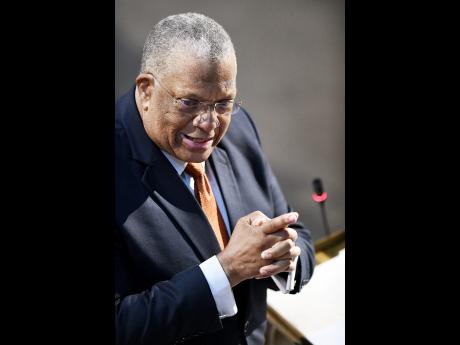Reporter’s Notebook | Time to get those Parliamentary committees working
The 2018-2019 parliamentary year started on April 1, but to date, several oversight committees of Parliament are yet to be constituted.
As parliamentarians prepare to rise for the summer break, one lawmaker has called on Prime Minister Andrew Holness to ensure that when the Lower House resumes its sittings in September, the committees are named so that legislators can attend to the business of the country.
Horace Dalley, the member of parliament (MP) for Clarendon Northern, last week urged the Government to appoint a chairman and members of the Internal and External Affairs Committee so that they can invite the leadership of the security forces to discuss with them, in camera, some critical issues impacting national security.
For the last four months, there has been a stalemate between the governing Jamaica Labour Party Government and the Opposition over who should chair some of these committees.
The Leader of Government Business in the Lower House Karl Samuda, a veteran legislator, has argued that the administration is strongly of the view that the Economy and Production Committee and the Infrastructure and Physical Development Committee should be chaired by a Government MP. He has cited policy-related issues why it was necessary for the Government to take charge of these committees.
"Apparently, they (the Opposition) are insisting that they chair all the committees, and we don't agree. Notwithstanding the recently established convention of having the Opposition chair these committees, we feel strongly that committees which deal with policy of the Government ought properly to be chaired by a Government member," Samuda told The Gleaner in April.
OPPOSITION DISAGREES
But the Opposition disagrees, countering with the argument that former Prime Minister Bruce Golding had introduced a new approach to accountability and transparency in the public sector by insisting that members of the parliamentary opposition chair the oversight committees of Parliament.
"If you want the Parliament to exercise its role as a watchdog of government, it really requires the committees to work and be chaired by the Opposition," Dr Peter Phillips, leader of the Opposition, told journalists at a press conference in April.
When Golding ushered in change in the chairmanship of parliamentary oversight committees after his election win in 2007, it created a shift from what is established in the Standing Orders or the rules of Parliament, which indicate that members of the committee may appoint a chairman, not necessarily a member of the Opposition.
Golding's directive remained in place for his entire tenure as prime minister and was not changed after Andrew Holness succeeded him, albeit for a short stint, as head of government.
After the election of 2011, the Portia Simpson Miller-led administration adopted the Golding model of allowing the Opposition to chair a number of parliamentary committees.
Fast-forward to July 2018, and there is no Economy and Production Committee, no Internal and External Affairs Committee, no Human Resources and Social Development Committee, and no Infrastructure and Physical Development Committee.
This means that a raft of critical issues of national importance, which ought to be properly discussed and ventilated at the committee level, remain unattended.




